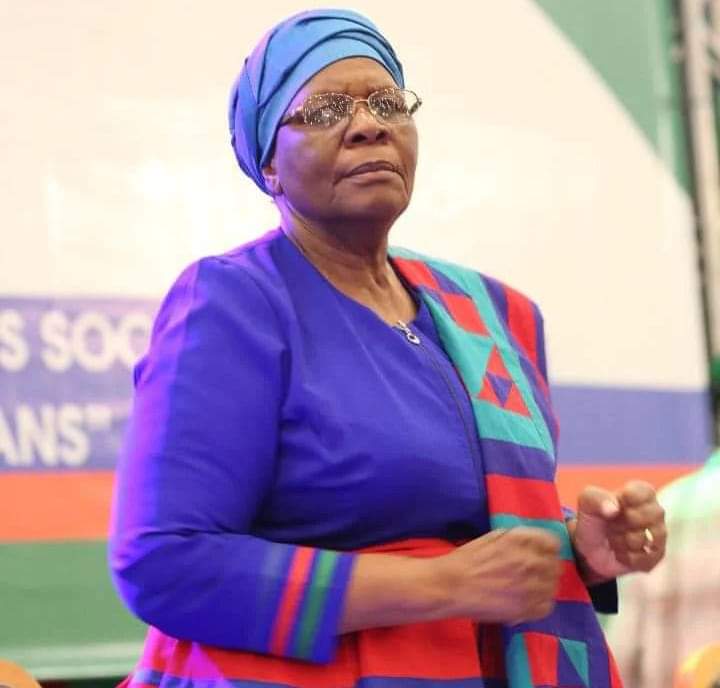NAMBIA has elected its first female leader, with Netumbo Nandi-Ndaitwah declared the winner of last week’s presidential election in a result that will extend the ruling South West Africa People’s Organisation (SWAPO) ‘s 34-year hold on power.
Nandi-Ndaitwah, the current vice president, won with 57% of the vote, according to official results, defying predictions that she might be forced into a runoff. SWAPO has ruled the country since its independence from apartheid South Africa in 1990.
“The Namibian nation has voted for peace and stability,” Nandi-Ndaitwah, 72, said after the final results were announced late on Tuesday.
Nandi-Ndaitwah will become the southern African country’s first woman president.
Nandi-Ndaitwah was a member of the underground independence movement in Namibia in the 1970s. She was promoted from foreign minister to vice president in February after President Hage Geingob died while in office.
Opposition parties have rejected the results after the election was marred by technical problems, including shortages of ballot papers and other issues, causing election officials to extend voting until Saturday. The opposition parties claim the extension was illegal and intend to challenge the results in court. The 27 November election was extended twice as logistical and technical problems, including a shortage of ballot papers, led to long queues.
Some voters gave up on the first day of voting after waiting for up to 12 hours.
The IPC has already said this was a deliberate attempt to frustrate voters and it would not accept the results of the elections.
Its presidential candidate Panduleni Itula, 67, said last week there were a “multitude of irregularities”.
No matter the result, “the IPC shall not recognise the outcome of that election”, he said on Saturday, the last day of the extended vote.
Itula said the IPC would “fight… to nullify the elections through the processes that are established within our electoral process”.
An organisation of southern African human rights lawyers serving as election monitors said the delays at the ballot box were intentional and widespread.
The Electoral Commission of Namibia (ECN) admitted to failures in the organisation of the vote, including a shortage of ballot papers and the overheating of electronic tablets used to register voters.
Of the nearly 1.5 million registered voters in the sparsely populated country, nearly 77 percent had cast ballots in the presidential vote, it said Tuesday.
The election was seen as a key test for SWAPO after other liberation-era movements in the region had lost favour with young voters.
In the past six months, South Africa’s African National Congress lost its parliamentary majority and the Botswana Democratic Party was ousted after almost six decades in power.
Namibia is a major uranium and diamond exporter but analysts say not many of its nearly three million people have benefited from that wealth in terms of improved infrastructure and job opportunities.
Unemployment among 15- to 34-year-olds is estimated at 46 percent, according to the latest official figures from 2018, which is almost triple the national average.
Nandi-Ndaitwah, a SWAPO stalwart known by her initials NNN, will be among the few women leaders on the continent.
The conservative daughter of an Anglican pastor, she became vice president in February this year.
Recognisable by her gold-framed glasses, she has tried to vaunt the wisdom of her years during the campaign where she was often wearing blue, red and green, the colours of her party and the national flag.
Among her election promises, NNN said she intends to “create jobs by attracting investments using economic diplomacy.”
•Additional report courtesy of AFP
Eighteen-Eleven Media


